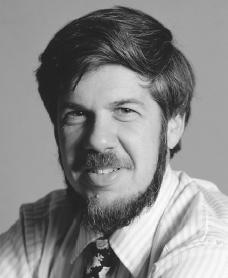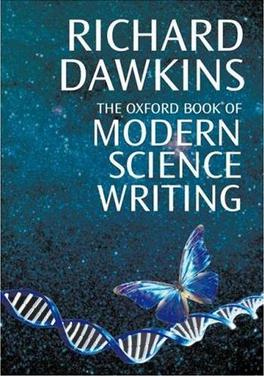Related Research Articles

Richard Phillips Feynman was an American theoretical physicist. He is best known for his work in the path integral formulation of quantum mechanics, the theory of quantum electrodynamics, the physics of the superfluidity of supercooled liquid helium, and in particle physics, for which he proposed the parton model. For his contributions to the development of quantum electrodynamics, Feynman received the Nobel Prize in Physics in 1965 jointly with Julian Schwinger and Shin'ichirō Tomonaga.

Stephen Jay Gould was an American paleontologist, evolutionary biologist, and historian of science. He was one of the most influential and widely read authors of popular science of his generation. Gould spent most of his career teaching at Harvard University and working at the American Museum of Natural History in New York. In 1996, Gould was hired as the Vincent Astor Visiting Research Professor of Biology at New York University, after which he divided his time teaching between there and Harvard.

Thomas Henry Huxley was an English biologist and anthropologist who specialized in comparative anatomy. He has become known as "Darwin's Bulldog" for his advocacy of Charles Darwin's theory of evolution.

Primo Michele Levi was a Jewish-Italian chemist, partisan, writer, and Holocaust survivor. He was the author of several books, collections of short stories, essays, poems and one novel. His best-known works include If This Is a Man, his account of the year he spent as a prisoner in the Auschwitz concentration camp in Nazi-occupied Poland; and The Periodic Table (1975), a collection of mostly autobiographical short stories each named after a chemical element as it played a role in each story, which the Royal Institution named the best science book ever written.

Dmitri Ivanovich Mendeleev was a Russian chemist known for formulating the periodic law and creating a version of the periodic table of elements. He used the periodic law not only to correct the then-accepted properties of some known elements, such as the valence and atomic weight of uranium, but also to predict the properties of three elements that were yet to be discovered.

Oliver Wolf Sacks was a British neurologist, naturalist, historian of science, and writer. Born in London, Sacks received his medical degree in 1958 from The Queen's College, Oxford, before moving to the United States, where he spent most of his career. He interned at Mount Zion Hospital in San Francisco and completed his residency in neurology and neuropathology at the University of California, Los Angeles (UCLA). Later, he served as neurologist at Beth Abraham Hospital's chronic-care facility in the Bronx, where he worked with a group of survivors of the 1920s sleeping sickness encephalitis lethargica epidemic, who had been unable to move on their own for decades. His treatment of those patients became the basis of his 1973 book Awakenings, which was adapted into an Academy Award-nominated feature film, in 1990, starring Robin Williams and Robert De Niro.

James Gleick is an American author and historian of science whose work has chronicled the cultural impact of modern technology. Recognized for his writing about complex subjects through the techniques of narrative nonfiction, he has been called "one of the great science writers of all time". He is part of the inspiration for Jurassic Park character Ian Malcolm.

Darwin College is a constituent college of the University of Cambridge. Founded on 28 July 1964, Darwin was Cambridge University's first graduate-only college, and also the first to admit both men and women. The college is named after one of the university's most famous families and alumni, that of Charles Darwin. The Darwin family previously owned some of the land, Newnham Grange, on which the college now stands.

Sir D'Arcy Wentworth Thompson CB FRS FRSE was a Scottish biologist, mathematician and classics scholar. He was a pioneer of mathematical and theoretical biology, travelled on expeditions to the Bering Strait and held the position of Professor of Natural History at University College, Dundee for 32 years, then at St Andrews for 31 years. He was elected a Fellow of the Royal Society, was knighted, and received the Darwin Medal and the Daniel Giraud Elliot Medal.
The periodic table is a tabular arrangement of the chemical elements.

Basic Books is a book publisher founded in 1950 and located in New York City, now an imprint of Hachette Book Group. It publishes books in the fields of psychology, philosophy, economics, science, politics, sociology, current affairs, and history.

The Periodic Table is a 1975 short story collection by Primo Levi, named after the periodic table in chemistry. In 2006, the Royal Institution of Great Britain named it the best science book ever.

The Oxford Book of Modern Science Writing is an anthology of scientific writings, arranged and introduced by Richard Dawkins of the University of Oxford. Published first in March 2008, it contains 83 writings on many topics from a diverse variety of authors, which range in length from one to eight pages. All inclusions are dated post-1900, and include poetry, anecdotes, and general philosophical musings.
Benjamin Wiker is a Roman Catholic ethicist and professor of political science and Human Life studies at Franciscan University of Steubenville.
John Wyon Burrow, FBA was an English historian of intellectual history. His published works include assessments of the Whig interpretation of history and of historiography generally. According to The Independent: "John Burrow was one of the leading intellectual historians of his generation. His pioneering work marked the beginning of a more sophisticated approach to the history of the social sciences, one that did not treat the past as being of interest only in so far as it anticipated the present."

Maaza Mengiste is an Ethiopian-American writer. Her novels include Beneath the Lion's Gaze (2010) and The Shadow King (2019), which was shortlisted for the 2020 Booker Prize.

The Feynman Lectures on Physics is a physics textbook based on a great number of lectures by Richard Feynman, a Nobel laureate who has sometimes been called "The Great Explainer". The lectures were presented before undergraduate students at the California Institute of Technology (Caltech), during 1961–1964. The book's co-authors are Feynman, Robert B. Leighton, and Matthew Sands.

Adam David Rutherford is a British geneticist and science populariser. He was an audio-visual content editor for the journal Nature for a decade, and is a frequent contributor to the newspaper The Guardian. He formerly hosted the BBC Radio 4 programmes Inside Science and The Curious Cases of Rutherford and Fry; has produced several science documentaries; and has published books related to genetics and the origin of life.
The W. H. Heinemann Award is an award established by William Heinemann who bequeathed funds to the Royal Society of Literature to establish a literary prize, given from 1945 to 2003.
Robert Weil is an Executive Editor and Vice President of the publishing imprint W. W. Norton / Liveright. From 2011 to 2022 he was the Editor-in-Chief and Publishing Director of Liveright, succeeded by Peter J. Simon in July, 2022.
References
- ↑ Conocimiento, Ventana al (11 April 2017). "Primo Levi and the Best Science Book ever Written".
- ↑ "The debate is on: the best science book ever is announced | Imperial News | Imperial College London". Imperial News.
- ↑ Hagen, Margareth; Skagen, Margery Vibe (28 February 2014). Literature and Chemistry: Elective Affinities. ISD LLC. ISBN 9788771246278 – via Google Books.